Thiết bị Switch Juniper EX4650-48Y-DC-AFO
Mã sản phẩm : EX4650-48Y-DC-AFO
Thông số sản phẩm Switch Juniper EX4650-48Y-DC-AFO
– CPU 1.5 GHz dual-core Intel
– RAM 8 GB memory
– Storage 32 GB SSD storage
– Switching Capacity 1.44 Tbps/1.08 Bpps
– Weight 21.8 lb (9.9 kg)
– Dimensions (HxWxD) 1.72 x17.36 x 20.48 in (4.37 x 44.09 x 52.02 cm)
– Dimensions (W x H x D) 17.41 x 1.72 x 16.43 in. (44.21 x 4.32 x 41.73 cm)
– Power Consumption 150 W
– 1GbE SFP: 48 (24 copper 1GbE)
– 10GbE SFP+: 48/72 (with breakout cable)
– 40GbE QSFP+: 6
– 2 management ports: 1 RJ-45 and 1 SFP
BẢO HÀNH: 12 THÁNG
(*) GIAO HÀNG HỎA TỐC NỘI THÀNH 1H
Mô tả
Switch Juniper EX4650-48Y-DC-AFO hỗ trợ 48 Ports được phân phối chính hãng đầy đủ CO,CQ tại NetworkPro.vn.
Thiết bị chuyển mạch Switch Juniper EX4650-48Y-DC-AFO của Juniper Switch Enterprise cung cấp độ trễ thấp, tùy chọn triển khai linh hoạt và cung cấp đầy đủ các tính năng Lớp 2 và Lớp 3 như Virtual Extensible LAN (VXLAN), Open vSwitch Database (OVSDB) protocol, BGP Add-path, MPLS, L3 VPN, và IPv6 6PE…
Cùng xem thêm các sản phẩm Switch Juniper khác tại đây
|| Bạn đang cần tư vấn giải pháp và thiết bị mạng phù hợp. Đừng ngại liên hệ ngay cho NetworkPro:
HOTLINE: 0908 314 585
Thông số kỹ thuật Switch Juniper EX4650-48Y-DC-AFO
| Hardware Specifications | |
| CPU | 2.3 GHz quad-core Intel CPU |
| Memory | 16 GB |
| Storage | 64 GB SSD storage |
| Switching Capacity | 2 Tbps/1.49 Bpps |
| Weight | 23.7 lb (10.75 kg) |
| Dimensions (HxWxD) | • 1.72 x 17.36 x 20.48 in (4.37 x 44.09 x 52.02 cm) • Switching mode: Cut-through and store-and-forward • front to back airflow for cold aisle deployment • Management and console port connections |
| Power Consumption | • Max load 450 W; typical load 260 W; idle load 160 W |
| Interface Options | • 1GbE SFP: 48 (24 copper 1GbE) • 10GbE SFP+: 48/80 (with breakout cable) • 25GbE SFP28: 48/80 (with breakout cable) • 40GbE QSFP+: 8 • 100GbE QSFP28: 8 • Each QSFP+ port can be configured as a 4 x 10GbE interface or as a 40 Gbps port • Each QSFP28 port can be configured as a 4 x 25GbE interface or as a 100 Gbps port • 1 USB 2.0 port • 1 RS-232 console port • 2 management ports: 2 x RJ-45 ports • Supported transceiver and direct attach cable (DAC) • SFP 1GbE optical and copper module • SFP+ 10GbE optical modules • SFP+ DAC cables: 1/3 m twinax copper and 1/3/5/7 m active twinax copper • SFP28 DAC cables: 1 m twinax copper • SFP28 optics: SR, LR • QSFP+ DAC cables: 1/3 m twinax copper • QSFP+ optics: SR4, LX4, ESR4, ER4, LR4 • QSFP+ to SFP+ 10GbE direct attach breakout copper (1/3 m twinax copper cable) • QSFP28 to SFP28 25GbE direct attach breakout copper (1 m twinax copper cable) • QSFP28 optics: SR4, ER4, PSM4, CWDM4, LR4 |
| Rack Installation Kit | • Versatile four-post mounting options for 19-in server rack or datacom rack |
| Airflow | • Redundant (N+1) and hot-pluggable fan modules for front to back airflow • Redundant variable-speed fans to reduce power draw |
| Power Supply and Fan Modules | • Dual redundant (1+1) and hot-pluggable 650 W AC power supplies • -44 to -72 V DC power supply • Redundant (4+1) and hot-pluggable fan modules for front to back airflow |
| Performance Scale (Unidimensional) | • Layer 2 – MAC addresses per system: 288,000 – VLAN IDs: 4093 – Number of link aggregation groups (LAGs): 80 – Number of ports per LAG: 64 – Multiple Spanning Tree Protocol (MSTP) instances: 64 – VLAN Spanning Tree Protocol (VSTP) instances: 509 – Jumbo frame: 9216 bytes • Firewall filters – Ingress filters: 1500 – Egress filters: 512 • Layer 3 – IPv4 unicast prefixes: 360,000 – IPv4 unicast routes: 208,000 – IPv4 multicast routes: 104,000 – ECMP paths: 64 – IPv6 unicast prefixes: 170,000 – Ipv6 unicast routes: 104,000 – IPv6 multicast routes: 52,000 – ARP entries: 64,000 • Traffic mirroring – Mirroring destination ports per switch: 4 – Maximum number of mirroring sessions: 4 – Mirroring destination VLANs per switch: 4 |
| Software Specifications | |
| Layer 2 Features | • STP—IEEE 802.1D (802.1D-2004) • Rapid Spanning Tree Protocol (RSTP) (IEEE 802.1w); MSTP (IEEE 802.1s) • Bridge protocol data unit (BPDU) protect • Loop protect • Root protect • RSTP and VSTP running concurrently • VLAN—IEEE 802.1Q VLAN trunking • The Routed VLAN Interface (RVI) • Port-based VLAN • Private VLAN (PVLAN) • VLAN translation • Static MAC address assignment for interface • Per VLAN MAC learning (limit) • MAC learning disable • Link Aggregation and Link Aggregation Control Protocol (LACP) (IEEE 802.3ad) |
| Link Aggregation | • Multichassis link aggregation (MC-LAG) • EVPN Multihoming (ESI-LAG) • LAG load-sharing algorithm—bridged or routed (unicast or multicast) traffic: – IP: SIP, Dynamic Internet Protocol (DIP), TCP/UDP source port, TCP/UDP destination port – L2 and non-IP: MAC SA, MAC DA, Ethertype, VLAN ID, source port |
| Layer 3 Features (IPv4) | • Static routing • Routing protocols (RIP, OSPF, IS-IS, BGP) • Virtual Router Redundancy Protocol (VRRP) • Bidirectional Forwarding Detection (BFD) protocol • Virtual router • Dynamic Host Configuration Protocol (DHCP) relay • Proxy Address Resolution Protocol (ARP) |
| Multicast Features | • Internet Group Management Protocol (IGMP): v1, v2, v3 • IGMP snooping: v1, v2, and v3 (L2 only) • IGMP Filter • PIM-SM, PIM-SSM, PIM-DM • Multicast Source Discovery Protocol (MSDP) |
| Security and Filters | • Secure interface login and password • RADIUS • TACACS+ • Ingress and egress filters: Allow and deny, port filters, VLAN filters, and routed filters, including management port filters • Filter actions: Logging, system logging, reject, mirror to an interface, counters, assign forwarding class, permit, drop, police, mark • SSH v1, v2 • Static ARP support • Storm control, port error disable, and autorecovery • Sticky MAC address • DHCP snooping |
| Quality of Service (QoS) | • L2 and L3 QoS: Classification, rewrite, queuing • Rate limiting: – Ingress policing: Single-rate two-color policer, two-rate three-color policer – Egress policing: Policer, policer mark down action – Egress shaping: Per queue on each port • 10 hardware queues per port (8 unicast and 2 multicast) • Strict-priority queuing (PQ), shaped-deficit weighted round-robin (SDWRR), weighted random early detection (WRED), weighted tail drop • 802.1p remarking • L2 classification criteria: Interface, MAC address, Ethertype, 802.1p, VLAN • Congestion avoidance capabilities: WRED • Trust IEEE 802.1p (ingress) • Remarking of bridged packets |
| Data Center Bridging (DCB) | • Priority-based flow control (PFC)—IEEE 802.1Qbb • Data Center Bridging Capability Exchange (DCBX), DCBx FCoE, and iSCSI type, length, and value (TLVs) |
| High Availability | • Bidirectional Forwarding Detection (BFD) • Uplink failure detection |
| MPLS | • Static label-switched paths (LSPs) • RSVP-based signaling of LSPs • LDP-based signaling of LSPs • LDP tunneling (LDP over RSVP) • MPLS class of service (CoS) • MPLS LSR support • IPv6 tunneling (6PE) (via IPv4 MPLS backbone) • IPv4 L3 VPN (RFC 2547, RFC 4364) |
| Server Virtualization Management and SDN-Related Protocols | • VXLAN OVSDB • EVPN-VXLAN |
| Management and Operations | • Role-based CLI management and access • CLI via console, telnet, or SSH • Extended ping and traceroute • Junos OS configuration rescue and rollback • Image rollback • SNMP v1/v2/v3 • Junos XML management protocol • sFlow v5 • Beacon LED for port and system • Zero Touch Provisioning (ZTP) • OpenStack Neutron Plug-in • Python • Junos OS event, commit, and OP scripts • Junos Telemetry Interface (JTI) |
| Traffic Mirroring | • Port-based • LAG port • VLAN-based • Filter-based • Mirror to local • Mirror to remote destinations (L2 over VLAN) |
Bạn phải bđăng nhập để gửi đánh giá.

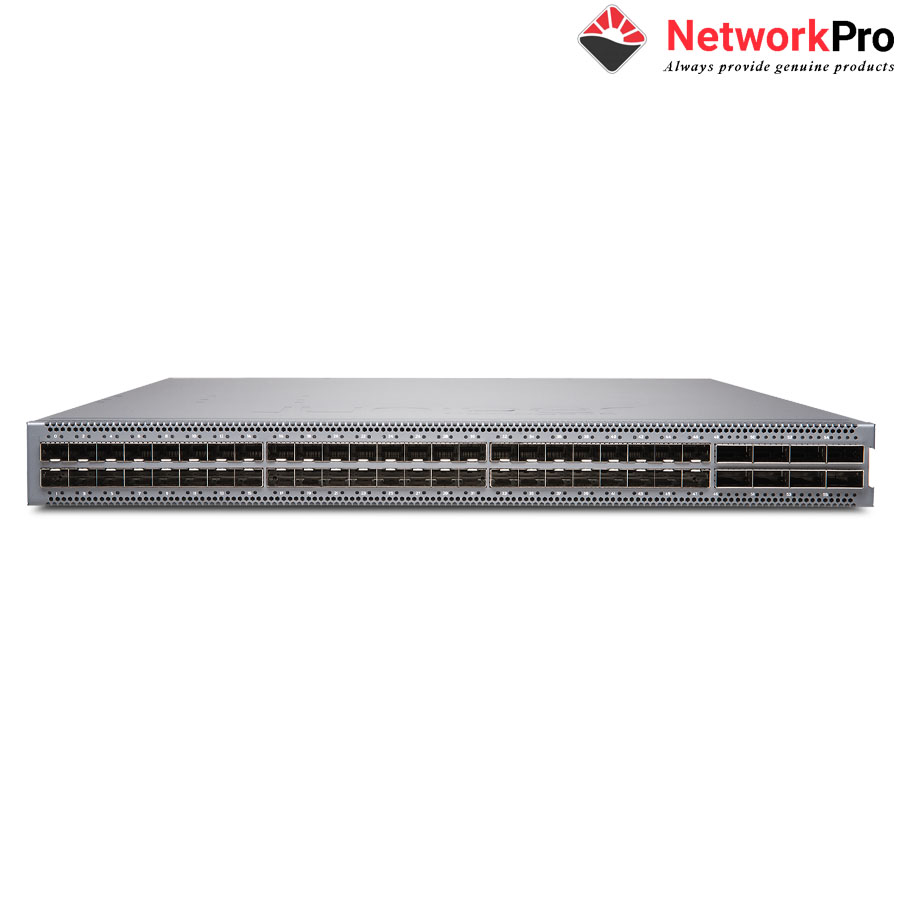
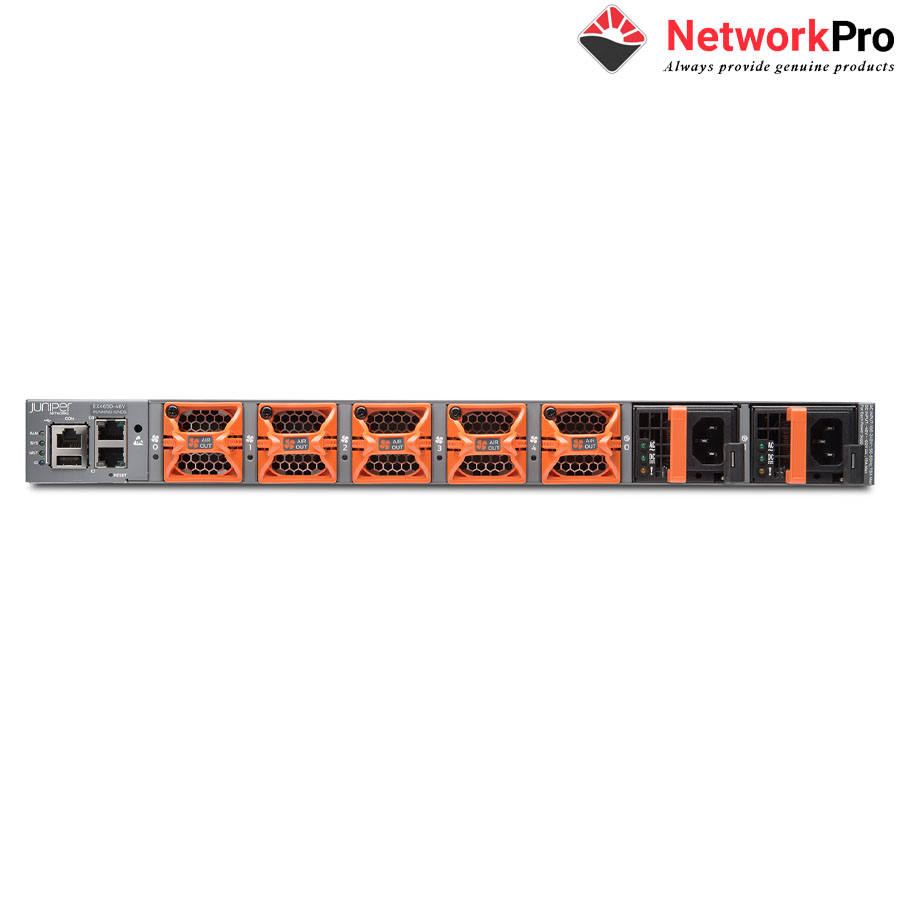
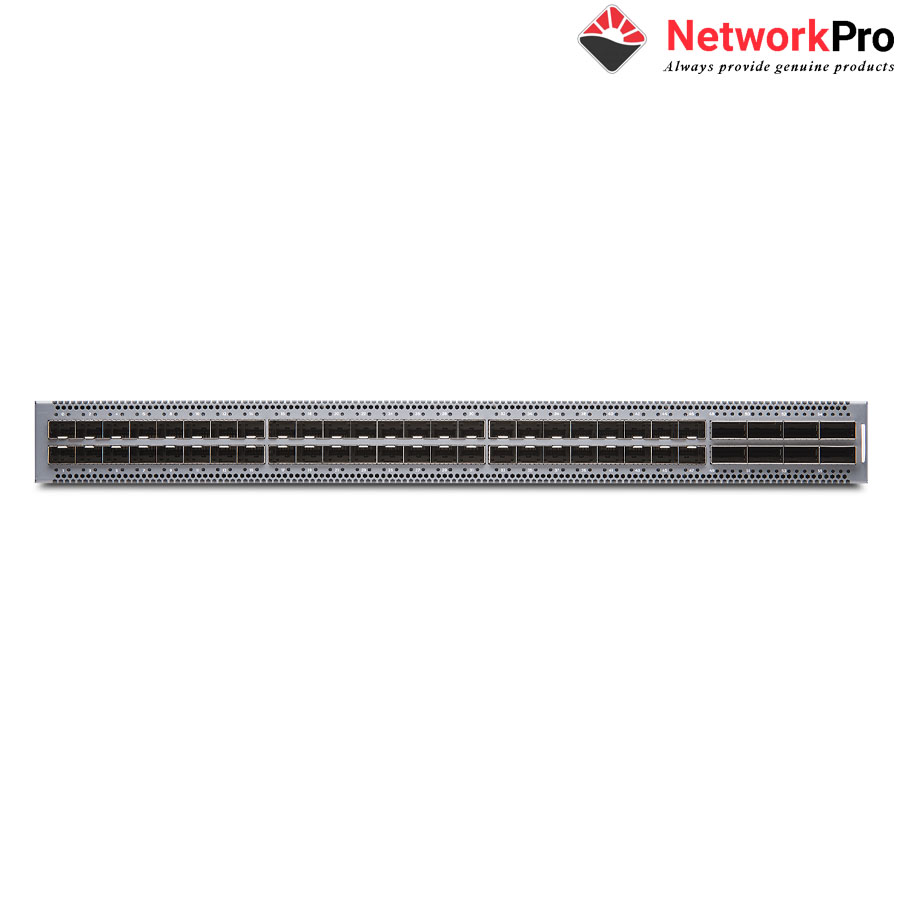
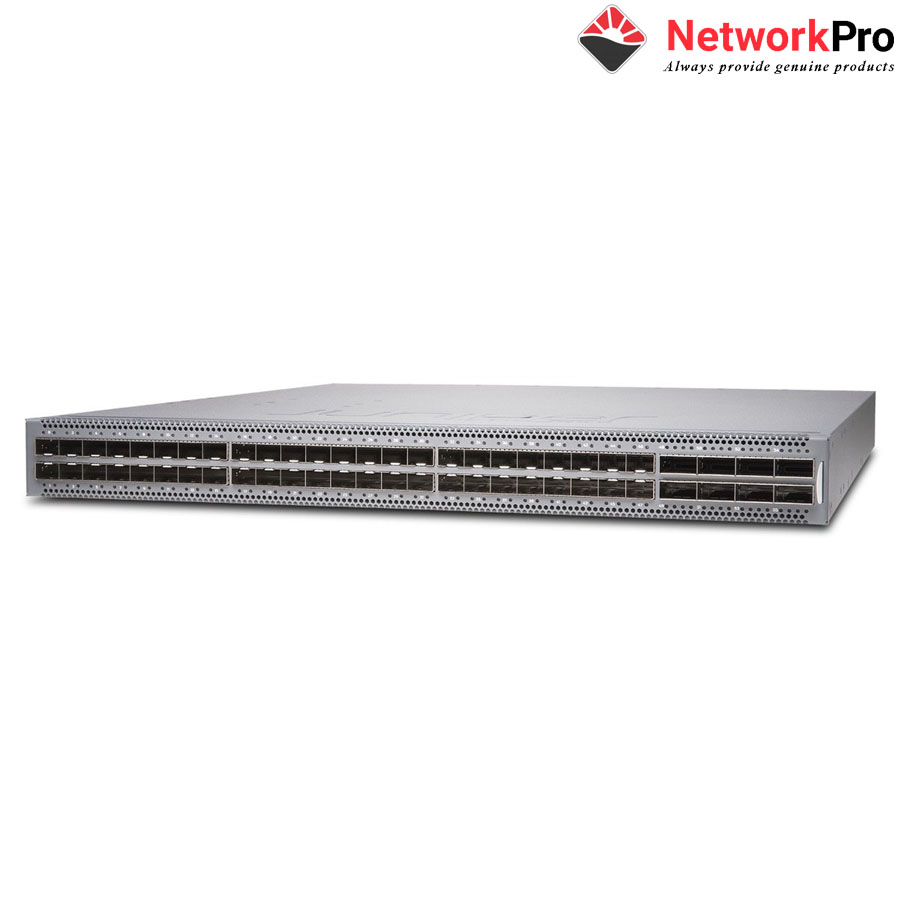
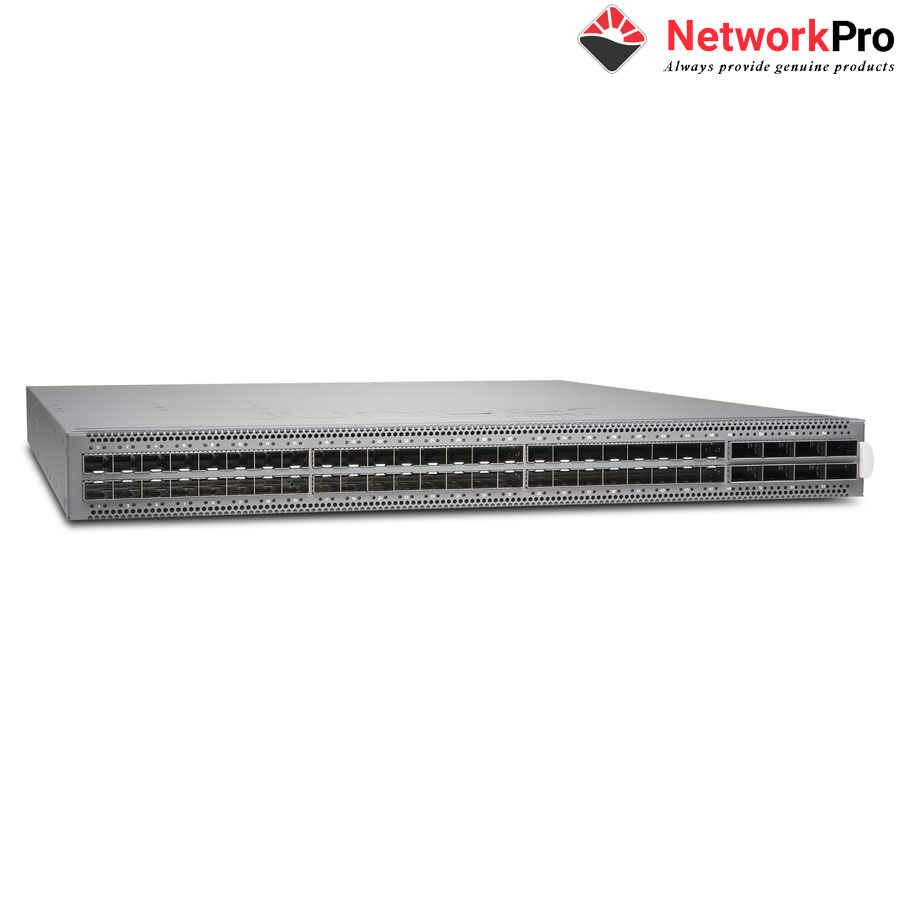
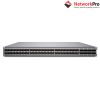
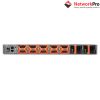
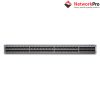
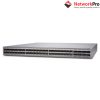
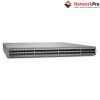
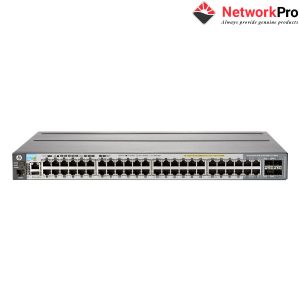
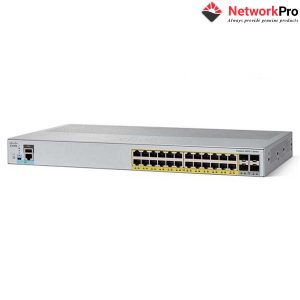
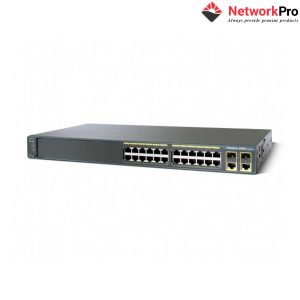
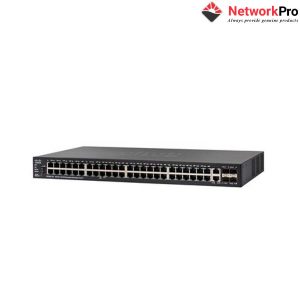
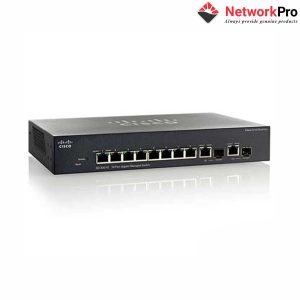

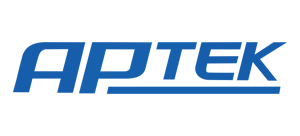



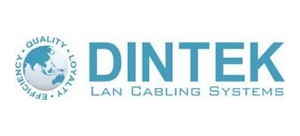



Đánh giá
Chưa có đánh giá nào.